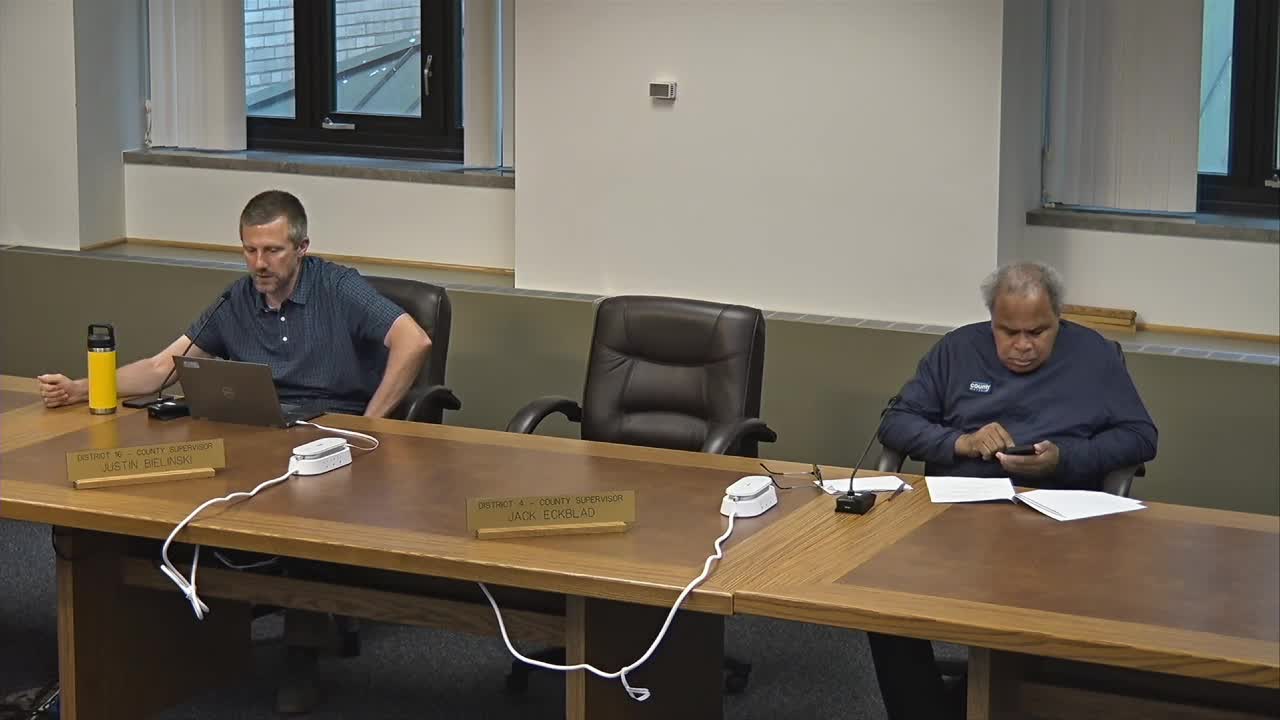Supervisors propose fare compliance strategy for Milwaukee County Transit System
July 09, 2025 | Milwaukee County, Wisconsin
This article was created by AI summarizing key points discussed. AI makes mistakes, so for full details and context, please refer to the video of the full meeting. Please report any errors so we can fix them. Report an error »

Milwaukee County is taking significant steps to enhance its public transportation system with a new resolution aimed at improving bus fare compliance. During a recent hybrid meeting of the Committee on Transportation and Transit, supervisors discussed a proposal led by Supervisors Rowland, Eckblad, Vincent, Logston, and Capriollo. This resolution requests the Milwaukee County Transit System (MCTS) to develop a data-informed strategy focused on strengthening fare compliance, which is crucial for boosting revenue and ensuring the long-term sustainability of the transit system.
The initiative comes in response to ongoing challenges faced by MCTS in maintaining financial stability while providing essential services to the community. By implementing a strategy based on data analysis, the county aims to identify effective methods to encourage fare payment among riders, ultimately supporting the operational needs of the transit system.
In addition to this key resolution, the meeting included discussions on various other topics, although the fare compliance strategy stood out as a pivotal focus. The committee's decision to refer the resolution to the finance committee indicates a proactive approach to addressing the financial aspects of public transportation.
As Milwaukee County moves forward with this initiative, the implications for residents are significant. Improved fare compliance could lead to enhanced services and reliability within the transit system, benefiting daily commuters and occasional riders alike. The county's commitment to a sustainable transit system reflects its dedication to meeting the transportation needs of the community while ensuring fiscal responsibility.
The initiative comes in response to ongoing challenges faced by MCTS in maintaining financial stability while providing essential services to the community. By implementing a strategy based on data analysis, the county aims to identify effective methods to encourage fare payment among riders, ultimately supporting the operational needs of the transit system.
In addition to this key resolution, the meeting included discussions on various other topics, although the fare compliance strategy stood out as a pivotal focus. The committee's decision to refer the resolution to the finance committee indicates a proactive approach to addressing the financial aspects of public transportation.
As Milwaukee County moves forward with this initiative, the implications for residents are significant. Improved fare compliance could lead to enhanced services and reliability within the transit system, benefiting daily commuters and occasional riders alike. The county's commitment to a sustainable transit system reflects its dedication to meeting the transportation needs of the community while ensuring fiscal responsibility.
View full meeting
This article is based on a recent meeting—watch the full video and explore the complete transcript for deeper insights into the discussion.
View full meeting
